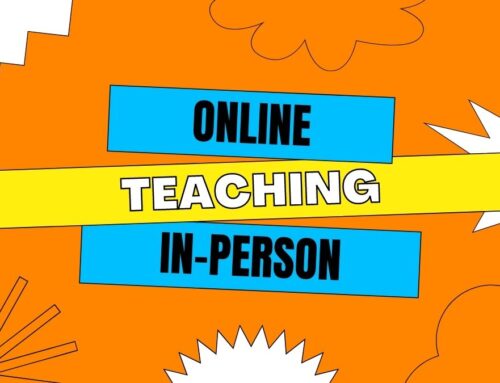I have been so fortunate to have interviewed people or have them write a piece for my blog for everyone to read! This next interview/guest writer is from a friend of mine that I met while in China though she is originally from Arkansas, USA. She currently lives and works in China, but we met while she had some vacation time and was traveling around herself!
Here is her story:
My Chinese Adventure
I have always been what you might call a “cautious adventurer.” I dreamed of and longed for adventure from a young age, but I never knew how I would eventually accomplish it while remaining “safe.” When I got older and entered college, I decided that “safety” was no longer my top priority. Having a fulfilling life was.
Taking risks is a big part of having the life of your dreams, so when I heard about the opportunity to go on an adventure and teach English in China, I was excited just considering the idea. I thought it sounded like a wonderful thing to do, despite never having left the United States before, nor even having traveled much outside of the South.
Traveling
I went on to travel quite a bit more throughout college on school sponsored trips, and went on volunteer humanitarian trips to Haiti four times. When it was time to make the decision between grad school and China, as a senior, I chose China. You can always put some dreams on hold and do them later, but if you choose the more “risky” thing to do later, someone may eventually talk you out of it, or “life may get in the way,” as some people have told me often happens. One of my life goals is to get to the end and be able to say that I have no regrets, so traveling to China first made sense to me.

Why China?
“Why did you choose to go to China, rather than somewhere else?” you may ask. The answer to that is quite simple. I heard about the opportunity to teach English in China when I was a freshman in college, from some people who had been to China before and knew all the ins and outs of the process.
They knew many others who also had been to China, and they had been helping to spread the information about this life changing opportunity to college students at universities in my region. They offered assistance, said they would guide me through the visa process, help me to get a contract with a school they knew of (complete with housing and utilities covered), and that they would help me even after I arrived in China if I had any problems.
I thought this sounded amazing for someone who would be living overseas for the first time. My suggestion for you, if you ever consider moving to China or overseas (if you’ve never done it before), is that you find a support group or organization who will do the same for you. It was hard enough preparing for and adjusting to my new life, but I was beyond grateful to have a group of people there for me every step of the way.
Teaching English in China
Teaching English was a bit difficult for a first-time teacher such as myself. It was something I really had to work at and become more confident in. I had a TEFL (Teaching English as a Foreign Language) certificate, but didn’t feel as adequately prepared for teaching as I would have liked to be. Once I figured out “my style” of teaching and started to incorporate my own personality and qualities into my lessons, I began to gain a lot of enjoyment and fulfillment from it. It gives me great joy to see students learning and enjoying the lessons that I’ve prepared for them.
I live in the city of Hengyang, the second largest city in Hunan province. It is considered a “small city” in China, despite having around 1 million people in the city proper and 7 million in the surrounding area. It is not as upscale as somewhere like Shanghai or Guangzhou, and the transportation system isn’t quite as developed as those in the larger cities. Despite it being a large city to me, it does have a certain “hometown” feel to it, which I think would be difficult to find in the bigger places. There are few foreigners in the city, and most of the foreigners that are there are medical students from either Africa or an adjacent country in Asia. So when I go outside in my city, even just to the supermarket, I get quite a lot of stares and smiles!
My White Experience
Being a 5’10 white girl with blue eyes and light colored hair gets you a lot of curious attention in a small city in south/central China.
The university I work for has two campuses, and they recently moved all English majors to the “new campus.” I live on the old campus, so I have a 20 minute bus ride every day I have to teach classes. The school provides a bus for all the teachers who live on or near the “old campus” to ride on, so that we don’t have to take public transportation. Most of the classrooms are equipped with black/white boards and computers with display screens for PowerPoint presentations, which makes our job much easier than I thought it would be when I first arrived in China.

Teachers are held in high regard in China, and are expected to dress somewhat professionally and act in a respectable manner, and students are expected to show respect to their teachers. The students are generally very curious about American life and will ask a lot of questions about it if given the opportunity.
They may be very shy at first, but most will eventually open up once they get to know you better. It may take a while before they feel comfortable enough to answer you questions in class, and you may have to call on someone specifically to answer. One of the important things to recognize and be sensitive to in Chinese culture is that they think of one’s reputation as being very important.
Chinese Student Culture
Embarrassing yourself or someone else to the point where it damages your reputation is a very serious thing and is called “losing face.” Most people will do whatever it takes to not “lose face.” So, a student who wants to have the reputation of being smart, yet does not know the answer to your question, could be embarrassed if they give the wrong answer. I have found that the most effective way of teaching and helping everyone to not “lose face” is by laughing at myself when I make mistakes, calling on students individually to answer questions if no one volunteers, and consistently reminding them that mistakes are part of learning and we are all in this together.
Cultural Differences
The largest cultural difference that I have found between China and the US is that of individualism and collectivism. People have a different mindset in China because they have been instilled with different values than Americans have. A person’s mindset/worldview influences their thinking and therefore, their actions. In the US, independence, personal achievement, and personal fulfillment are huge values instilled in us from a young age.
In China, the more important values are filial piety (honoring your family), loyalty to your family and friends, and contributing to your group and society as a whole. A high value is placed on harmony within relationships. To break that harmony or to cause discord could cause a loss of face for you or someone else, so confrontation is always done carefully and with as much tact as possible.
Travel Advice for China and Asia
I love traveling, as you can probably tell and I already mentioned traveling to Haiti during college, but I had never been to any other countries before moving to China (China was country #3 if you include my home country). I traveled to Thailand for a week last year during one of my teaching breaks. However, most of the traveling I’ve done since moving to China has been within China. This is a HUGE country with so many fascinating places, food, and people.
Thanks to teaching breaks, paid vacation (the kindness of the school I work for), and low cost of living, I have been blessed to travel to many of those places and meet many of those people. I have been to 17 cities within China, each with a different culture and unique atmosphere. I have seen the Great Wall in Beijing (Side note from My Open Passport: She met me on that tour!), the Bund in Shanghai, the amazing Terracotta Warriors in Xi’an, cute pandas in Chengdu, the breathtaking Avatar Mountains in Zhangjiajie, the ancient rice terraces in Guilin, eaten breakfast in Guangzhou (早茶, or “morning tea”), and had 臭豆腐 (“stinky tofu”) in Changsha. 小炒肉 (literally “little fried meat,” or as we like to call it, “pork and peppers”) is probably my favorite Chinese dish, and you can find it in my “home” province of Hunan. If you are a history buff or a foodie, you will definitely love China! I can’t say I have just one favorite place, because each place is amazing in its own way.

Tips for China
A tip for people wanting to visit China: it is recommended to learn at least some basic Chinese and to get the pronunciation right. It makes the locals smile to see a foreigner at least trying his/her best to communicate in their language. However, Mandarin is a very difficult language to learn, and as long as you don’t go to a smaller city or out to the countryside without a Chinese friend, you should be able to make it just fine without knowing much.
In the bigger cities it is very easy to travel by train or subway. All the signs in the stations are posted in both Chinese and English. Most of the time you can find an employee who knows at least basic English to assist you, should you need help. When I have needed help, there has always been someone who has done their best to assist me. Even random strangers! Chinese people are generally very hospitable to foreigners and they are quick to notice and offer their assistance. Many young people are shy about speaking English, but they are willing to overcome their shyness if they see a foreigner in trouble.
Technology in China
Another tip I’d like to share: there are certain apps that have made my life so much easier since I’ve been in China, and I think these would be helpful to you as well. Here is my list:
MetroMan (China Subway): This app gives you all the subway lines in China, so you can plan your route ahead of time.
Trip.com: This app allows you to book train tickets, flights, hotels, and more. I use it for train tickets more than anything else. They do charge a small booking fee, but I’m willing to pay it for convenience.
DiDi: This app is like the Chinese version of Uber. You can call a taxi to your location at any time. This app is becoming more vital as time goes on, as I have seen less and less regular taxis the longer I have been in China.
WeChat: This app can do everything (well, maybe not EVERYTHING…). Almost everyone in China has a WeChat account, and if you want to stay in touch with people, it’s vital that you get one too. It can also be used to pay for things if you move to China and set up a bank account. Just link your bank account to your WeChat and you can conveniently pay for things with a simple scan of a barcode.
American Ones
Google Translate: Google products don’t work in China without a VPN, but this one is an exception. This has been a lifesaver for me in many situations where I don’t know the right word or I’m faced with an all-Chinese menu and have no idea what to order. Of course, translation apps don’t work flawlessly, because they only translate directly from one language to another without factoring in cultural nuances and “understood” ideas in the first language. However, it’s always better to have it than not, and it works well enough to get you by most of the time.
Skype: If you don’t have a VPN, and your friends and family do not have WeChat, it may be difficult to communicate with them while you are in China. Email accounts work (with the exception of Gmail), but if you want more personal communication Skype is the way to go. You can call Skype to Skype for free, but if you want to call a mobile or landline number you will need a subscription. It’s $2.99USD/per month for unlimited calling from China to mobile or landline numbers in the US. My family doesn’t have access to reliable internet at their house, so Skype to Skype isn’t really an option when I want to chat with them. The subscription is the best and most affordable way I can have the assurance of being able to contact my family whenever I want to.
There are other apps that may be helpful to you in China, but those are the ones I “can’t live without.” I hope this list is helpful to you.
VPNs are a great way to stay secure as well as access sites such as Facebook, Twitter, YouTube, and Google while you are in China. I use ExpressVPN most of the time, but recently they have been having problems staying up to date against the firewall, so I use PandaPow VPN as a backup. Both of these are paid VPNs, but you can also find some free ones that some other foreigners say work just as well.

Moving to China
The process of moving to China was a bit stressful, but I was thankful for the guidance and assistance I had along the way. The visa application requires a lot of notarization, forms and documents. I had to notarize a copy of my college degree, TEFL certificate, and background check, solemnly swear that they were authentic, and send them to the agency dealing with my visa. Everything had to be done in the correct way or I’d risk denial. I had to travel to Little Rock (a 2.5 hour drive from where I lived) in order to get the paperwork notarized and finalized. That summer was a crazy time, but it was rewarding when I finally had my passport back with visa stamp in hand.
I travel home to visit friends and family in the States 1-2 times a year. One of the hardest things about being away for months at a time is returning home to see how much life has changed since you’ve been gone. Friends have gotten married, had babies, gotten new jobs, and moved to different places. You’ve changed so much because of the experiences you’ve had, and they have too. Nothing is going to be the same when you return, and you have to be okay with that. Sometimes family members pass away and you’re unable to make it home for the funeral. Babies in the family get a little bigger each time you return. It’s a sad reality to miss out on the lives of family and friends, but you get so much fulfillment from the adventures you have and the stories you’ll be able to tell your grandchildren one day.

Moving Forward
I have very much enjoyed living in China, but I plan to return to live in the US once again upon completing my third year of teaching as I just got accepted into a Master’s of Mental Health Counseling program, so I plan to begin school this fall. I think my experience with traveling and seeing other cultures will help me to be a good counselor, and I’m looking forward to the opportunities ahead!
Please keep the people of China in your thoughts and in your prayers, if you pray. The Coronavirus has hit them hard. All of the schools in the country are currently shut down and people are staying inside as much as possible to reduce the number of infections. I am staying in the United States until it is safe to return back to school and finish my last semester of teaching.
Be sure to connect with me on social media and sign up for monthly email updates!








































































Leave A Comment